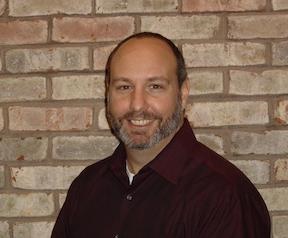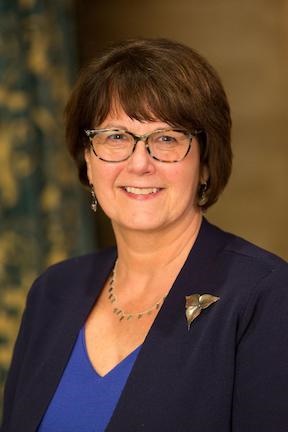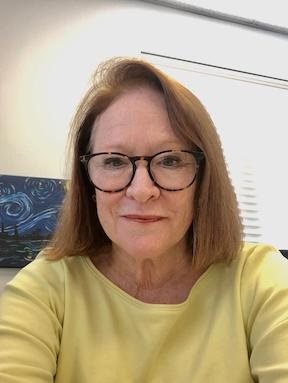
For years, Delaware ranked among the top 10 states in foreclosure. Burke, who has been with NCALL since 2012, says they've moved down, but for a time, one in every 790 homes saw foreclosure. Now, it's one in 1,279 homes. A client named Eva, whose work hours were cut along with day care support for her adult, autistic son, was almost one of those statistics. In 2012, when she couldn't keep up with her bills, she met with one of NCALL's foreclosure prevention counselors, who taught her budgeting and money management, and helped her modify her mortgage.

Caprice Atterbury, CEO of Family Services in South Carolina, doing business as Origin SC, agrees. "The biggest thing we used to tell the borrowers was to open their mail and talk to their lenders. Do not stick your head in the sand. This is not going to go away. Talk to your lender, talk to your counselors to help find solutions. If you throw away those notices that come in the mail, it will be a disaster. One of those notices will be foreclosure."
This September marked the 12-year anniversary of the housing crisis. At NeighborWorks, President and CEO Marietta Rodriguez has been urging the housing community to recall the lessons from that period, especially in the wake of mounting economic difficulties spurred by COVID-19. Burke, Speakman and Atterbury offer some of their own lessons:
- "If you don't have contacts with servicers and lenders in loss mitigation, you need to get those set up," says Speakman. Atterbury agrees. "We learned building relationships and rapport with the lenders was really important," she says.
- "You need a strategic partnership with all state levels," suggests Burke. "Join together to see where the need is" so you can look for solutions together, he says.
- "We learned that every lender was different," Atterbury says. "There isn't a single formula solution that you can spread across the entire spectrum of clients."
- "The mediation process works really well," says Speakman, focusing on a solution that is common in Delaware. "It's people to people, real people in front of each other. I think then they decide ‘Let's resolve this.'" She believes the human element, rather than just a paper trail, leads to positive outcomes. "The mediation process also gives the homeowner the opportunity to meet with someone who can really help steer them the correct way," adds Burke.
- Let people in the community know you have HUD-approved housing counselors at your organization, says Speakman. She also suggests increasing awareness about the importance of seeking one, especially as scams and so-called "easy solutions" are advertised.
- NCALL, Speakman's organization, has been doing homeownership counseling since the late 1980s. "In 2007, we started doing foreclosure prevention and hiring counselors to do that work," she says

"It was instrumental in helping us grow our foreclosure prevention program," Speakman says.
Burke says the money allowed them to have dedicated foreclosure specialists over the years. He worries that other organizations have dropped some of their foreclosure counseling, at least in the state of Delaware. In the next few months, he believes it will be needed.
The foreclosure department at Origin SC began in the years just before 2008, too, when Atterbury says they received calls from businesses asking them to do credit workshops for employees, "many of whom had been laid off or were working reduced hours." From there, the organization received funding from the HOPE hotline, and then, as with NCALL, from the NFMC program through NeighborWorks.
"Origin knew our communities needed effective foreclosure intervention services, but early on we could not find funding to pay for it," Atterbury says. The funding "was the first key ingredient to being able to provide services."
As the crisis progressed, Origin SC grew from 25 employees to 49. Some of those new employees included people who had been laid off from the mortgage industry. "All our new hires were focused on foreclosure counseling," Atterbury says. The program grew nationally and over the next seven years, provided services to more than 25,000 households facing foreclosure.
"In the beginning, servicers of mortgages didn't want to work with borrowers," she recalls. "They didn't want to work with us. It seemed like it was almost easier to let homes go into foreclosure. It became a national problem."
Now, she says, lenders have established more robust loss-mitigation departments, which Atterbury predicts will be of help if another crisis does occur.
Speakman and Burke say they are watching the signs – unemployment rates and other statistics in the state – to gear up for what may happen next, with the COVID-related economic downturn. The Delaware State Housing Authority, one of NCALL's partners, estimates that 2,400 homes in the state will be impacted by the COVID virus, including foreclosure.
Delaware is what's known as a judicial state, which means, where foreclosure is concerned, no one can be foreclosed upon until they receive a complaint from the court. Once they go to court and begin receiving notices from attorneys and lenders, they learn about HUD-approved counseling agencies. That's when they often contact NCALL, says Burke. "We facilitate between the lender, the attorney and the department of justice to try to save their home." NCALL handles the majority of mediation clients in the state, which has diverse housing stock – from million-dollar homes on the beach to $50,000 mobile homes.
Building in Delaware recently has been nonstop, Speakman says, and the area attracts retirees, whose demand for housing drives up the costs for others. While the organization worked with 521 clients last year in foreclosure prevention, they worked with 848 total clients in housing counseling. People are continuing to buy, she says. They saw 100 people close on new homes over the past two months. "Homeownership is still much more than foreclosure prevention, but that is changing."
Before this latest economic crisis, they had seen a decline in the number of people seeking foreclosure counseling, says Burke. Even with job losses due to COVID, need has stabilized, due in part to the mortgage foreclosure moratorium and a state mortgage assistance program. Burke says his department tries to point people there, instead of toward forbearances, which eventually come due. "We were really proactive with that," he says.
In South Carolina, too, there have been fewer people calling for foreclosure counseling over the past few years. Origin SC has continued to focus on its other missions: housing stability, consumer credit counseling, first-time homebuyer coaching, bankruptcy counseling, family violence intervention and more. In the last six months requests for rental, utility, and hotel/motel financial assistance has skyrocketed from 10 to 20 per week to hundreds of calls and email applications each week. "At this time, foreclosure counseling is still the smallest part of our financial counseling business," Atterbury says. "But we're preparing to pivot as foreclosure prevention demand increases."
Like NCALL, they continue to monitor trends in the state. At the beginning of the COVID-19 shutdown Origin offered an online segment on budgeting, "When ends Don't Meet". It was designed as a short- term crisis plan to help clients figure out which bills to pay first. Origin continues to analyze needs and work towards helping to provide solutions for households in our state, many of whom are facing financial crisis, foreclosure and homelessness.
For now, all eyes are on January. "During the holidays, things start slowing down," Burke says. "After the holidays, bills start coming in. That's when we'll see the uptick."
Forbearances and moratoriums are expected to end in December. "Once the banks can act, they will," Speakman says. "What we have to try to tell people is you still owe the mortgage payments. It's not forgiven. We appreciate the moratorium in terms of people not having to pay now, but it's going to crash."
They expect to hire a new person to help with the expected intakes. "I think the need's going to be there," Speakman says.
"What happened before, that was our learning curve," Burke says, adding that his department knows what lenders need to see from people seeking loan modifications – though he wishes applications were more streamlined. That's one thing that worked in their favor in 2008. "One of the pluses of having gone through the recession before, is that the lenders will respond faster and we know how to work with them. When this happened in 2008, nothing was set up."
"There is help," he adds. "We have our people's backs in the state of Delaware."
Says Atterbury, "Origin and our team of licensed counselors are in this together with our South Carolina community. We look forward to helping the community recover from the COVID-19 crisis and rebuild to help all gain and sustain housing and financial stability."
For more information about NeighborWorks' and NFMC, read this Capstone Report.
To follow or join a converation among subject matter experts about lessons learned from 2008, follow the 2 p.m. Twitter chat on October 15 at #HousingCrisisChat.

